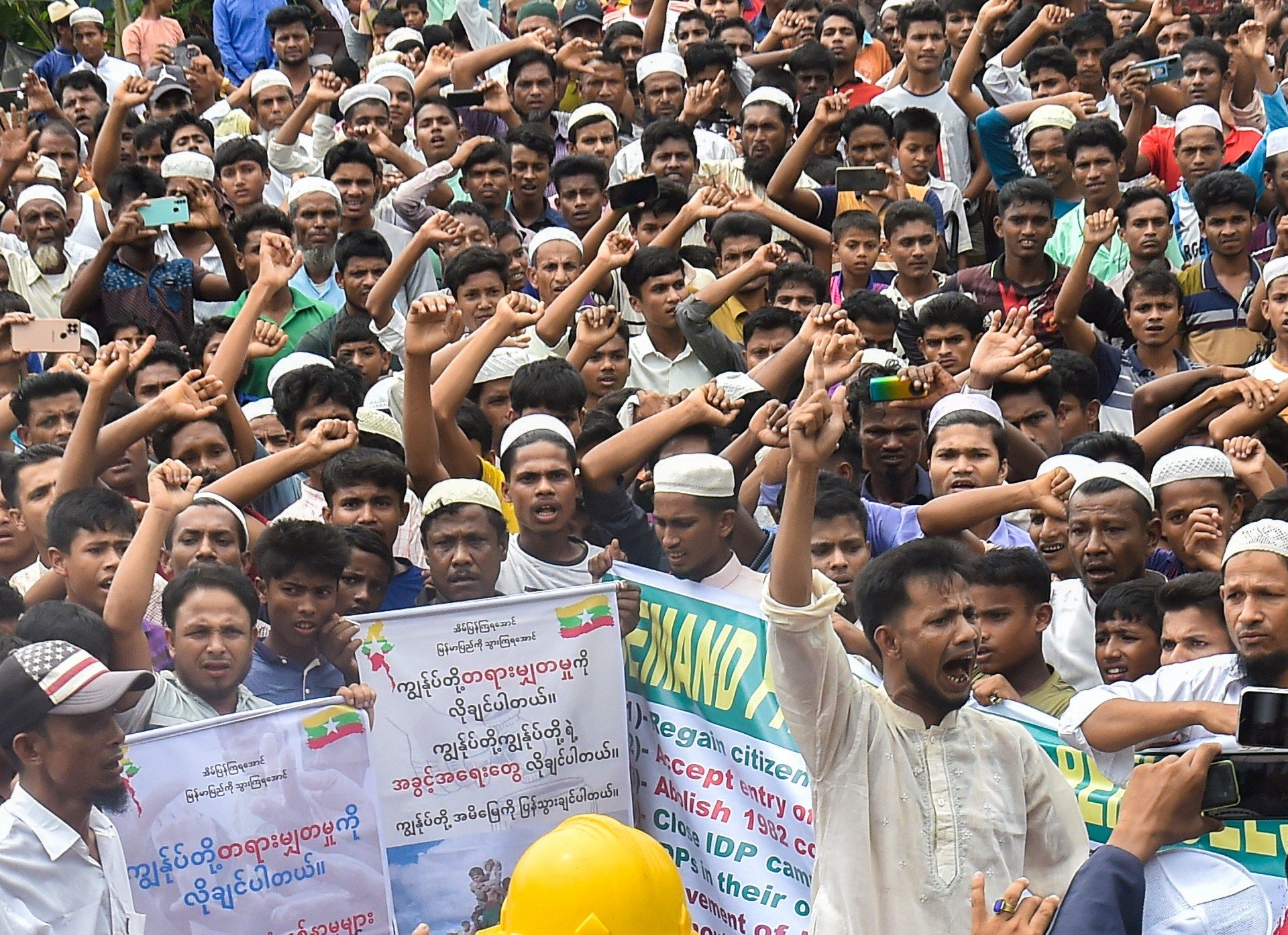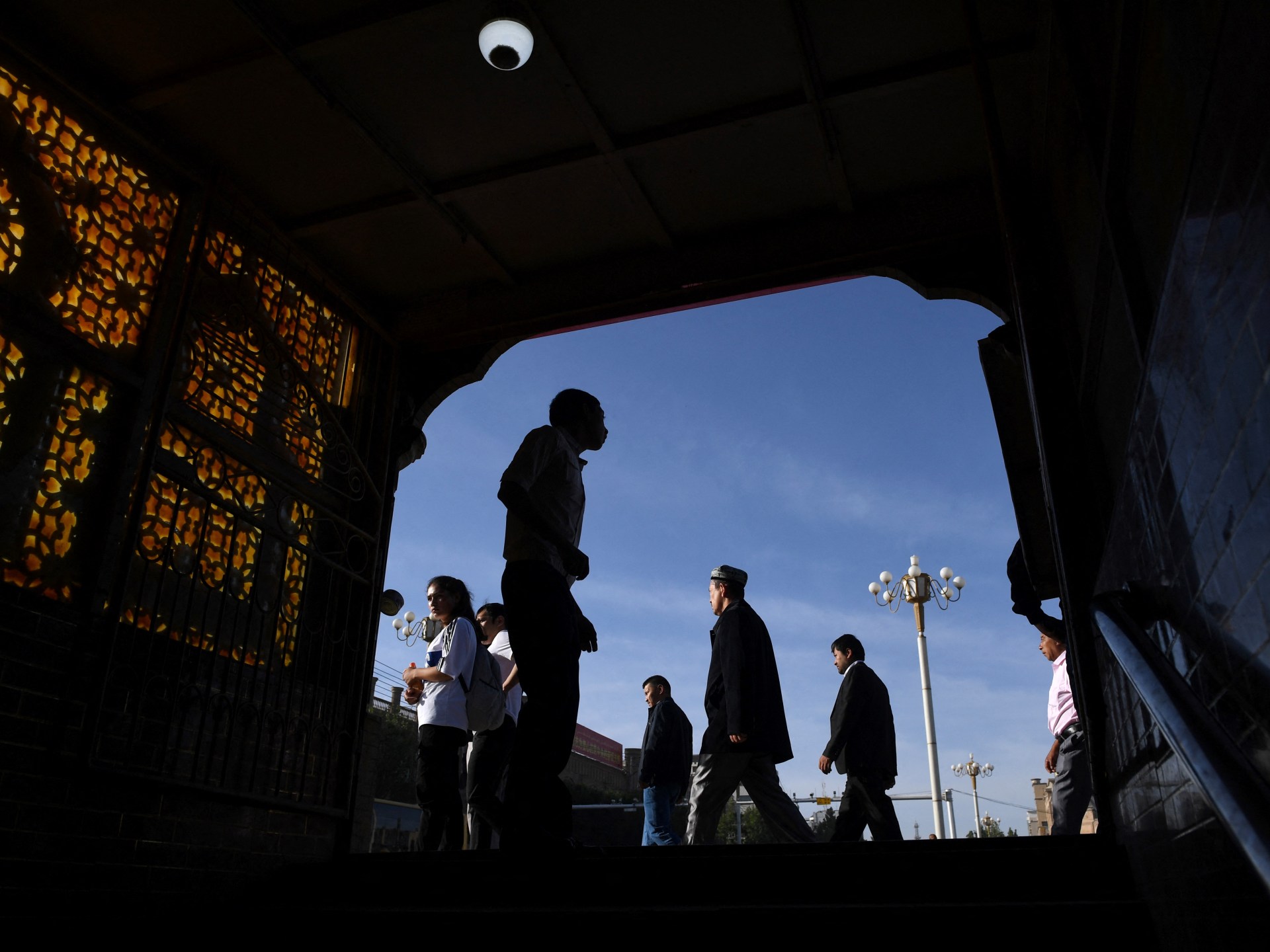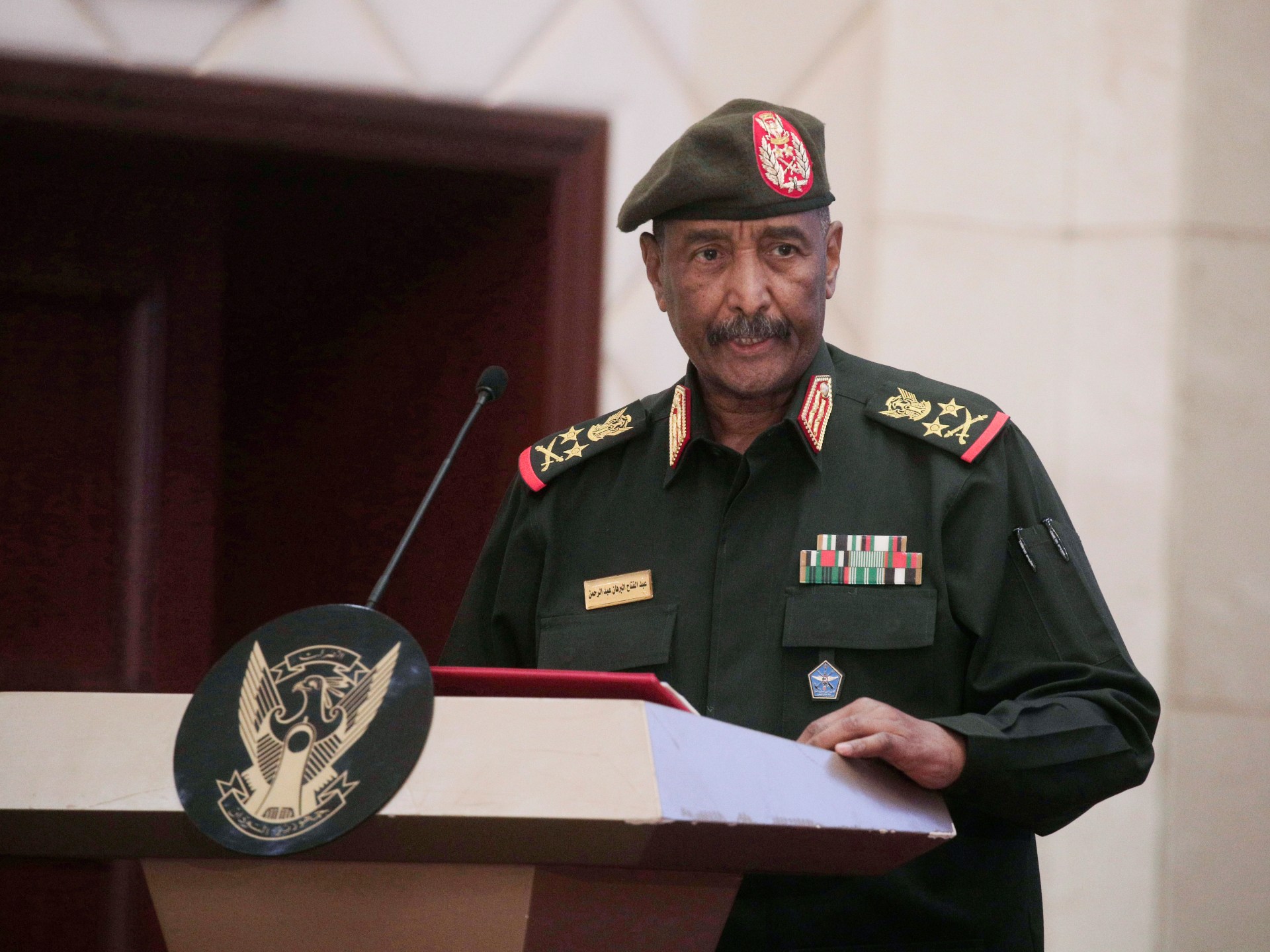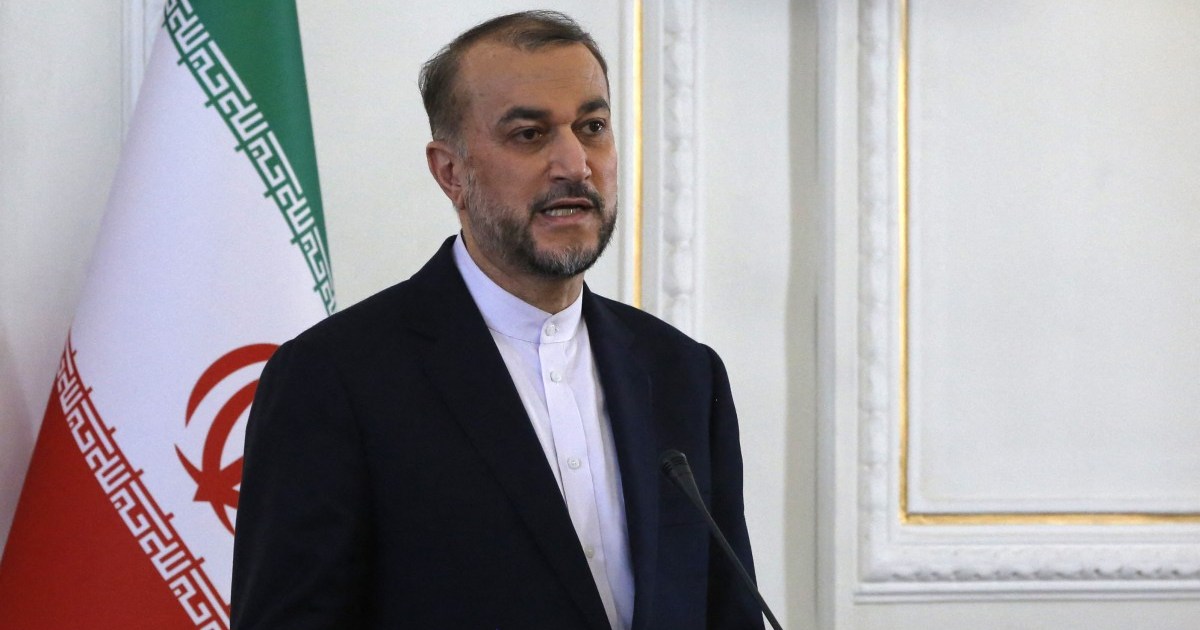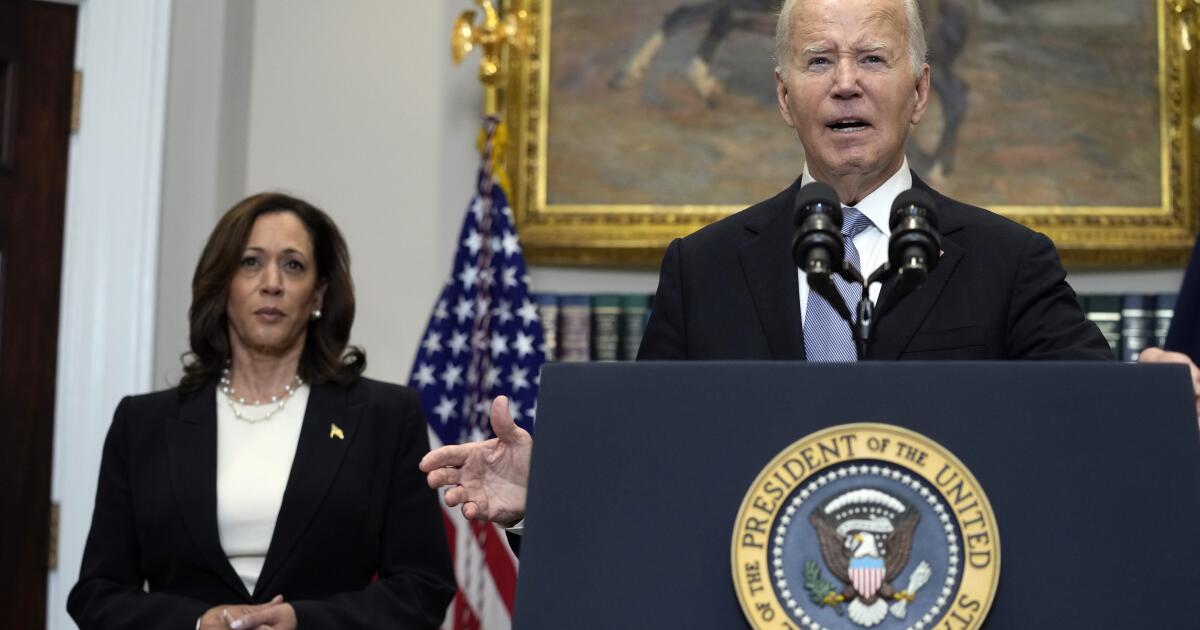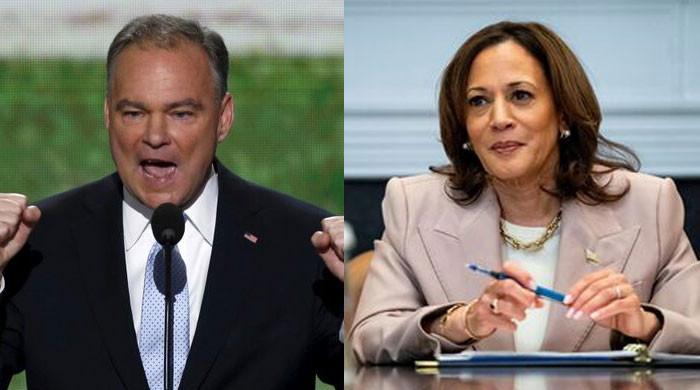Rohingya seeking refuge in Bangladesh hold protests to mark the seventh anniversary of their exodus from Myanmar.
Tens of thousands of Rohingya refugees in Bangladesh have held protests in camps to mark the seventh anniversary of a military crackdown in Myanmar that forced them to flee.
Refugees ranging from children to the elderly waved banners and chanted slogans at camps in Cox's Bazar on Sunday, demanding an end to the violence and their safe return to Myanmar.
Many also wore ribbons with the words “Remember the Rohingya Genocide.”
“Hope is our home” and “We Rohingya are citizens of Myanmar,” their signs read.
“Enough is enough. Stop the violence and attacks against the Rohingya community,” refugee Hafizur Rahman told Reuters news agency.
The Rohingya have long been subject to discrimination and ethnic violence in Myanmar.
In 2017, at least 750,000 Rohingya fled to neighbouring Bangladesh after Myanmar's military launched an offensive that is now the subject of a genocide case at the International Court of Justice in The Hague.
In recent weeks, thousands more Rohingya are reported to have fled Rakhine state in western Myanmar to Bangladesh, as fighting intensifies between the military government and the Arakan Army, a powerful ethnic militia that recruits from the Buddhist majority.
The international medical group Doctors Without Borders, known by its French acronym MSF, said its teams in Cox's Bazar treated 39 people with conflict-related injuries, including mortar and bullet wounds, in the four days leading up to August 7. More than 40 percent of the wounded were women and children, it added in a statement.
UNICEF has also raised the alarm over the worsening situation in Rakhine, citing increasing reports of civilians, especially children, caught in the crossfire.
She noted that seven years after the exodus from Myanmar, “an estimated half a million Rohingya refugee children are growing up in the world’s largest refugee camp.”
“We want to return to our homeland with full rights. The United Nations should take initiatives to ensure our livelihood and peaceful coexistence with other ethnic communities in Myanmar,” said refugee Mohammed Taher.
Meanwhile, Bangladesh's de facto foreign minister in its caretaker government, Mohammad Touhid Hossain, told Reuters this month that Myanmar's other neighbours, such as India, should do more.
Hossain also called for more international pressure on the Arakan Army to stop attacking the Rohingya in Rakhine state.
Orla Murphy, MSF representative in Bangladesh, said in a statement that civilians caught up in the conflict in Myanmar also need to be immediately protected.
“People must not be subjected to indiscriminate attacks and must be allowed to leave for safer areas, while all those in need of life-saving medical care must have unhindered and sustained access to medical facilities,” Murphy said.

